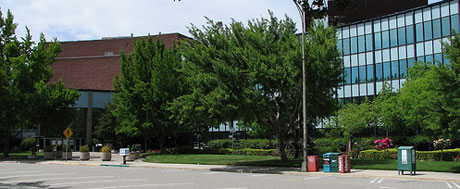Back in July 1776, the Continental Congress voted to declare independence from England and adopt the Declaration of Independence. However, there were several votes before the final vote that were not unanimous as some colonies voted no or chose to abstain.
Voting is an opportunity not everyone across the globe is afforded. We know that in close elections every vote counts. We also know that in our respective legislative bodies (at different levels of government) that each vote casted by an elected official has a magnified impact.
There have been many times throughout my elected tenure that I have casted the sole no vote. There was the time when I voted against spending $2.26 million dollars on golf nets for the already problematic golf courses the City owns. Most recently I was the only vote against transferring Old City Hall to the County. Other no votes included funding Mexican Heritage Plaza (again), raising residential recycling fees at a rate higher than inflation, labor contracts that tie the City’s hands, converting industrial land to housing, subsidizing Hayes Mansion or housing developments that do not pay property taxes yet require more services.
The City Council met on June 24 to discuss the mayor’s proposal on providing guidance on current negotiations for proposed ballot language and retirement reform. There were five councilmembers in support of the proposal put forward by the mayor and there were five against.
It came to me to cast the final vote. I could have supported the Mayor’s proposal, however, I needed the negotiations of such an important issue to be public. Negotiations really need to be made pubic, in my opinion, so that retirees, employees, residents, basically everyone, could see what is being said.
The largest union by membership, AFSCME-MEF, wanted negotiations to be public and I feel that the concept of public negotiations is good. I attended most of the public negotiation sessions for our city attorney union and found the sessions extremely valuable to hear for myself what was being said. These meetings simply let any member of the public sit and listen. No speaking was allowed by members of the public, however they could observe. This seemed to be a fair way of doing it instead of some suggestions like mandating that only certain members of the City Council could attend the negotiations and no members from the public, or that negotiations should be done during a council meeting which would possibly make council meetings last several days.
Issues of trust have been brought up and I feel public meetings would make those who feel there is a lack of trust be confronted with the reality of seeing for themselves what is said.
I asked that the motion on June 24 be amended to allow public negotiations for those unions that are open to having them conducted as a public meeting. The city cannot force a union to make the meeting public as they must offer. We debated the topic for 45 minutes going back and forth. The first motion did not entertain making these meetings public if a union was open to it. The vote on the first motion was 5-6 no, which included myself voting no. After considerable discussion a final motion was made that allowed review of proposals for public negotiations. The proposals from the unions would be brought back to the Council for consideration. My preference was to automatically accept proposals that followed the city attorney union public meetings model however there was resistance on the council.
The final motion which included the opportunity for public negotiations passed on 6-5 vote, which included myself voting yes.
Sometimes a single vote can be symbolic and sometimes it can be the deciding factor. In either circumstance my votes are consistent.


